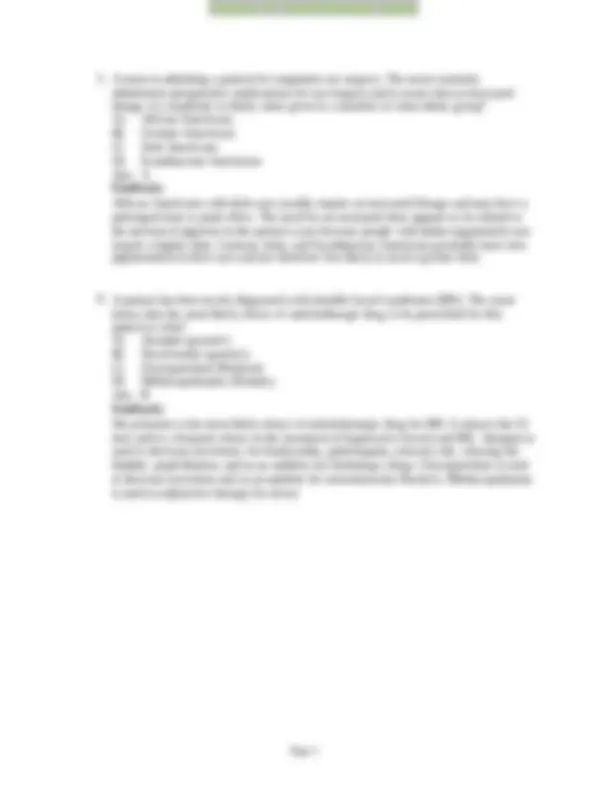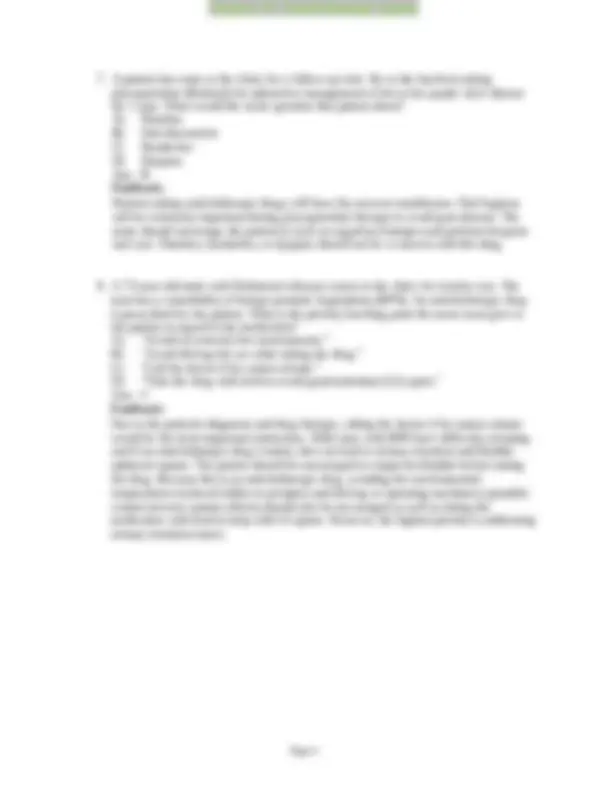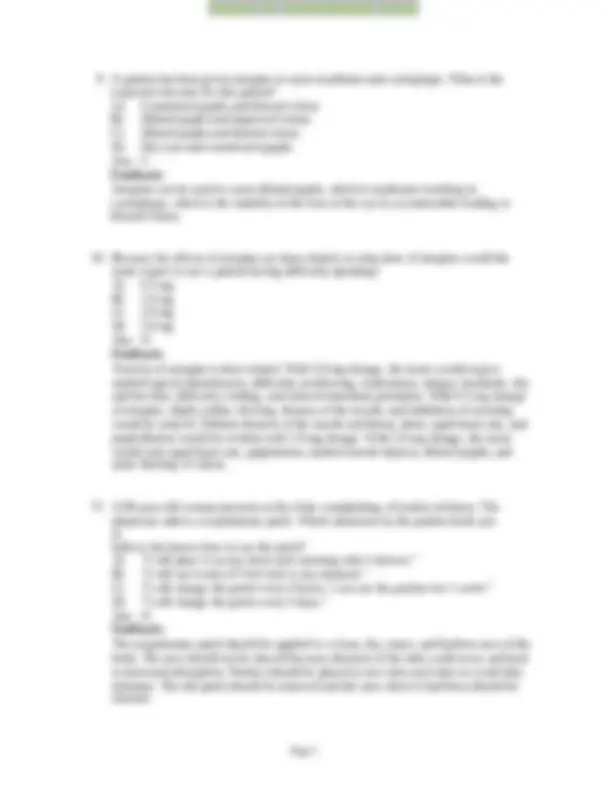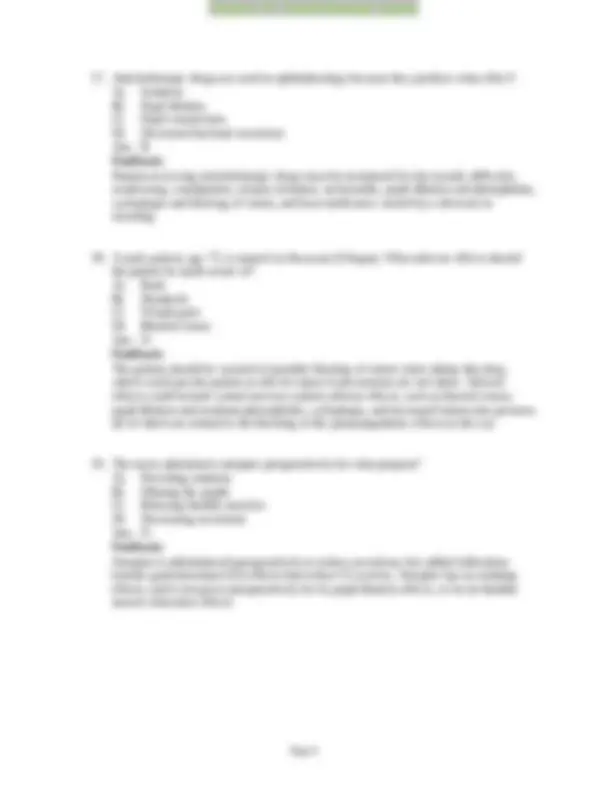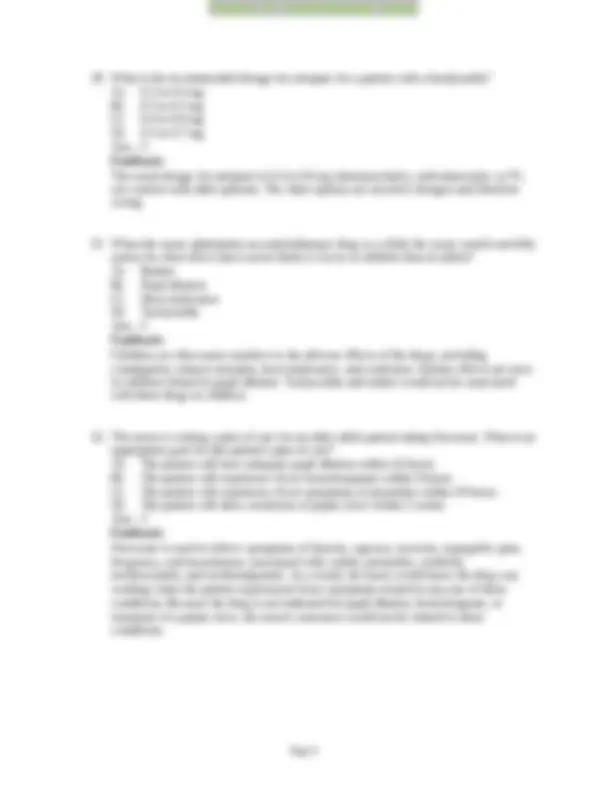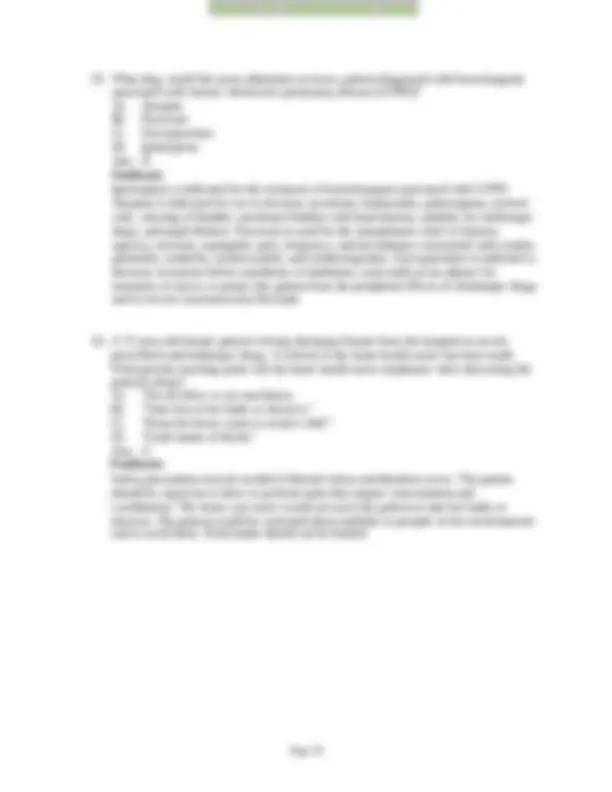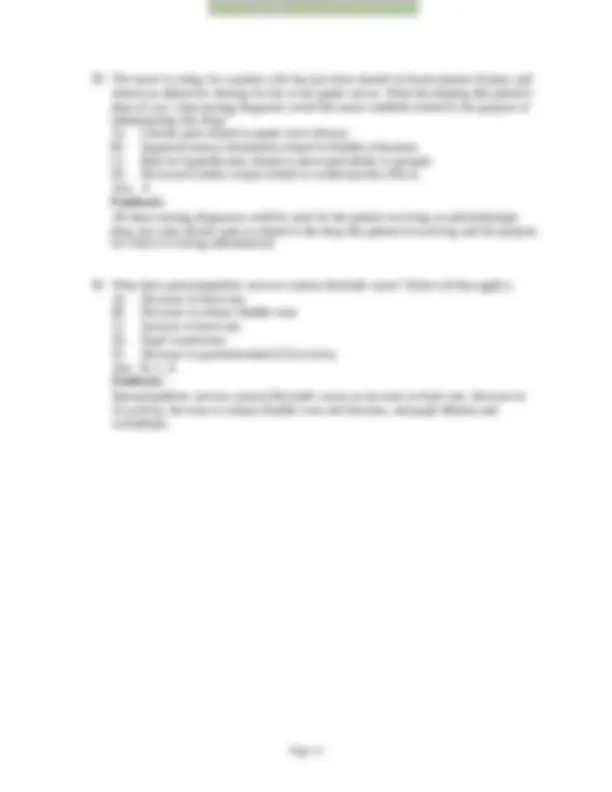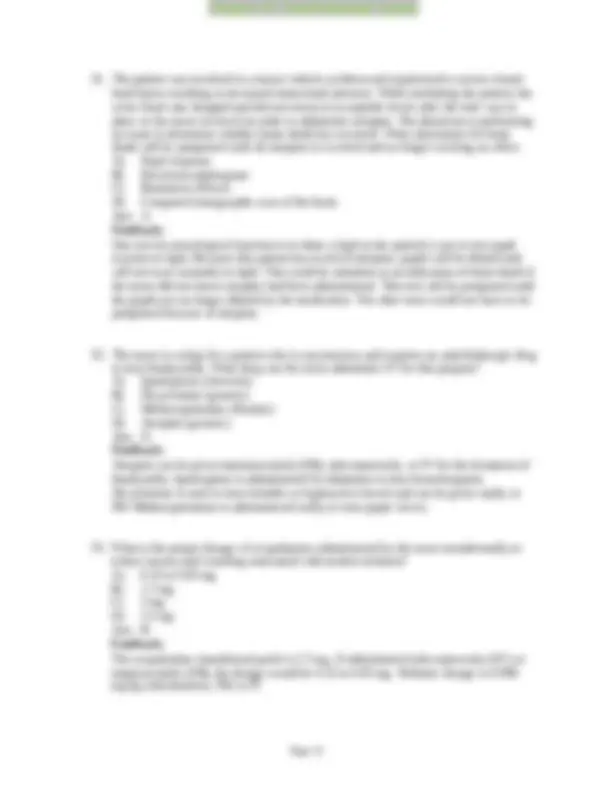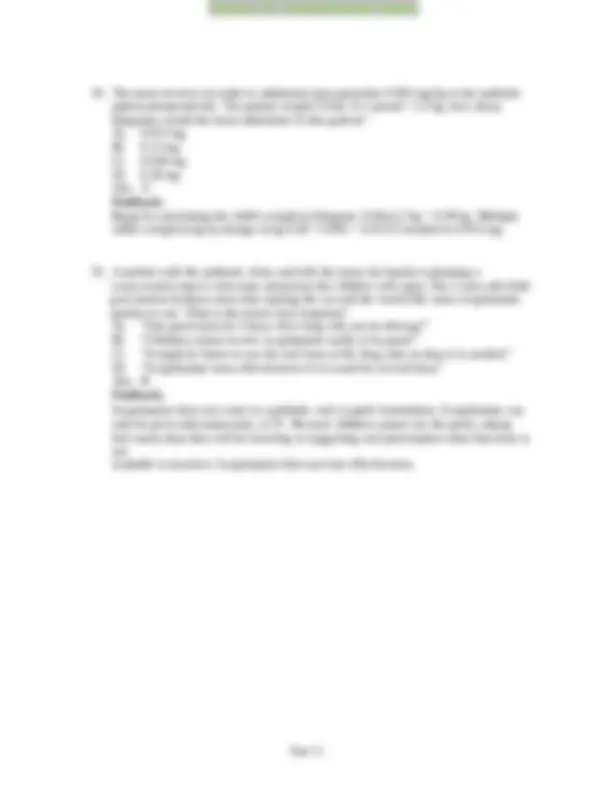Chapter 33- Anticholinergic Agents
1. A student asks the pharmacology instructor to explain the action of anticholinergic
agents. What would be the instructor's best response?
A) They block nicotinic receptors.
B) They compete with serotonin for muscarinic acetylcholine receptor sites.
C) They act to block the effects of the parasympathetic nervous system.
D) They increase norepinephrine at the neuromuscular junction.
Ans: C
Feedback:
Drugs that are used to block the effects of acetylcholine are called anticholinergic drugs.
Because this action lyses, or blocks, the effects of the parasympathetic nervous system,
they are also called parasympatholytic agents. The drug works by blocking only the
muscarinic effectors in the parasympathetic nervous system. They compete with
acetylcholine for the muscarinic acetylcholine receptor sites. They do not block the
nicotinic receptors and have little or no effect at the neuromuscular junction.
2. A patient calls the clinic and talks to the nurse. The patient tells the nurse he or she is
going on a cruise and is concerned about motion sickness. The patient says that a
friend has recommended that he or she see his or her primary care physician to get a
prescription for scopolamine. What adverse effect would the nurse inform the patient
that using scopolamine may result in?
A) Pupil constriction
B) Tachycardia
C) Diarrhea
D) Urinary incontinence
Ans: B
Feedback:
Scopolamine blocks the parasympathetic nervous system, which may result in dilated
pupils and increased heart rate (i.e., tachycardia). Blocking the parasympathetic system
also results in decreased GI activity and urinary bladder tone causing constipation and
urinary retention.

